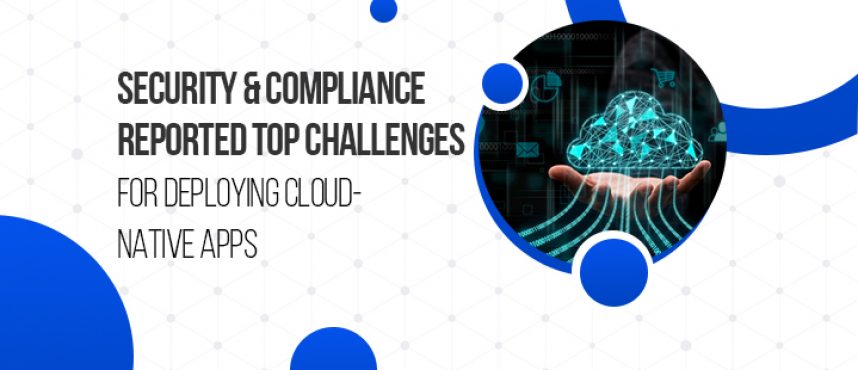Security and Compliance Reported Top Challenges For Deploying Cloud-Native Apps
Over the years, more and more enterprises around the globe are taking their digital transformation method a notch higher than their rivals who are yet to take digital transformation seriously.
Here digital transformation is used as an umbrella term for enterprises that are adopting cloud-native applications. This should not be considered a bubble as cloud-native application usage is here to stay hence, it is no wonder that the development and enhancement of cloud-native platforms and containers are on the rise as well.
There is a catch though – the increasing popularity of cloud-native apps entails unique sets of challenges.
What are those challenges?
Well, as per a report published by Tigera after the software company surveyed 304 IT security experts and IT professionals from around the world who are directly associated with cloud-native containers. The study revealed that more than 75% of the enterprises have redirected most of their resources to the development of cloud-native applications. At the same time, more than 96% of the survey participants also pointed out the unique sets of challenges pertaining to –
- Security
- Compliance and
- Apparentness of cloud-native applications that they are actively working on to sort out the same.
According to the survey –
- More than 68% cited container security as the primary challenge.
- More than 60% cited network security as the secondary challenge
- More than 57% cited compliance as the tertiary challenge and
- More than 39% cited apparentness as the quaternary challenge
According to spokespersons associated with the leading managed cloud service providers in Mumbai, the aforementioned challenges need to be addressed by enterprise managers who are actively adopting cloud-native apps in their ventures.
How can one manage the challenges of deploying cloud-native apps?
Well, that can be done in the following ways –
Adopt zero trust to reduce the attack surface
Experts associated with a reputed public cloud service provider advise enterprise managers to enforce zero-trust environment in their company so that the flow of business-critical data is secured.
To enforce a zero-trust environment, one would need to make sure that they have granular control over their network set and DNS policies. One must also make sure that they are making the best use of micro-segmentation in a bid to isolate workloads.
Scan for known and unknown vulnerabilities and malware
Network security specialists associated with top AWS cloud service providers in India also advise enterprise managers to make sure that they are prioritising the safety of all the cloud-based workloads from external threats by adopting efficient application-level security solutions and result-oriented web application firewalls.
Alleviate risks from exposure
Another effective solution to protect cloud-based workloads from external threats is to respond to threats in a dynamic fashion by investing in tools that make the best use of runtime visualization that would allow one to –
- Monitor suspicious behaviour
- Troubleshoot network issues problems and
- Sort out performance issues on the fly.
Run Public Cloud Security Assessment
It is best that one invests in Public Cloud Security Assessment services offered by entities like Network Techlab as such services can play a significant role when it comes to streamlining cloud adoption and ensuring that an enterprise adopting cloud will be able to mitigate the risks that come with using cloud-native apps. For the best results, experts recommend enterprise managers who use cloud-native apps in their ventures to run a Public Cloud Security Assessment at least once a year to be on the safe side of things.
Conclusion
To learn more, one should consult with the experts at Network Techlab – the leading provider of quality-assured IT solutions in Mumbai with a track record spanning more than 25 years. The firm is ISO 27001:2013 certified and has a pan-India presence. For more details, please call 022 6681 4141 or send an email at info@netlabindia.com.





